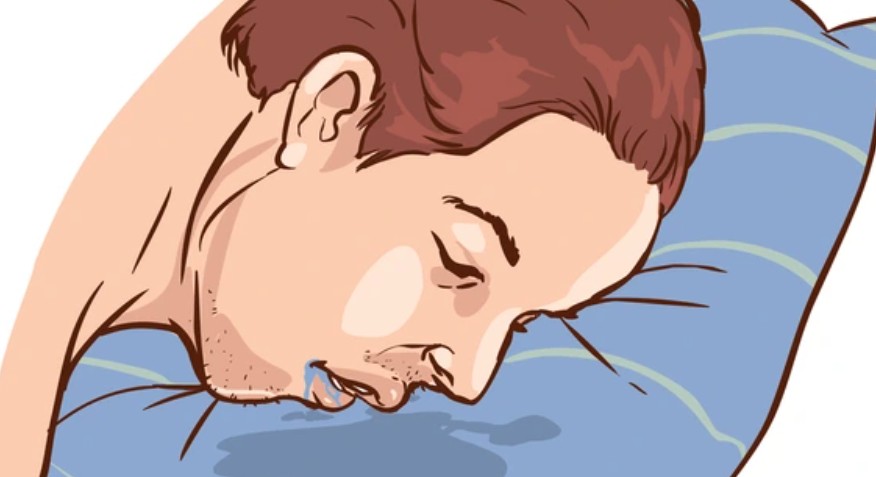Do you wake up with saliva on your pillow? Occasional drooling is normal, but if it occurs frequently, it may indicate a medical problem.
6 common causes of excessive nighttime salivation:
Oral problems:
Gum disease, infections, or misaligned teeth can overstimulate saliva production.
Tip: See a dentist if you notice discomfort or misalignment.
Facial paralysis:
Weakness on one side of the face can make it difficult to control saliva.
Look for a drooping mouth or difficulty blinking.
Acid reflux:
Stomach acid can trigger excessive saliva production as a defense mechanism.
Watch for heartburn or a bitter taste.

Parkinson’s disease.
This condition can impair swallowing and cause drooling.
It is often associated with tremors or slow movements.
Stroke (cerebral thrombosis)
A stroke can weaken the swallowing muscles and lead to salivary retention.
Emergency symptoms: facial asymmetry, slurred speech.
Arteriosclerosis:
Poor blood flow to the brain can impair muscle control.
It’s common in people with high blood pressure or high cholesterol.
Simple ways to reduce salivation:
- Sleep on your back to keep your mouth closed.
- Maintain good oral hygiene to avoid irritation or infection.
- Discuss your medications with a doctor if drooling is a side effect.
